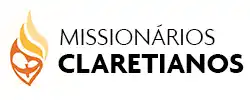Rome, Italy. From December 10 to 13, 2024, the XLIX “Convegno Claretianum” gathered participants under the theme “Dialogue with the Human and Divine: Consecrated Life in Churches and Religions.” Held at the USMI Auditorium, this four-day event featured academic presentations, testimonies, and opportunities for fraternal dialogue.
The opening day, December 10, explored anthropological and psychological dimensions of dialogue. Professor Luca Pandolfi, from the Pontifical Urban University, presented a comparative phenomenology of religious experiences, emphasizing the need for attentive listening to others’ realities without imposing one’s own interpretations. Following this, Professor Giuseppe Crea, a psychologist from the Pontifical Salesian University/Claretianum, addressed “Active Listening as the Matrix of Vocational Identity,” highlighting its role in sustaining vocational identity as a response to divine and human dialogue.
December 11, the second day, focused on interreligious experiences of “consecrated life.” Professor Lucio Sembrano, representing the Dicastery for Interreligious Dialogue/Claretianum, spoke about dialogues rooted in truth and charity, including inter-monastic initiatives since the 1970s. Testimonies highlighted diverse spiritual traditions:
- Nadjia Kebour, of the Pontifical Urbanian University, presented Sufism as a mystical path involving ascetic practices like meditation and soul purification.
- Svamini Shuddhananda shared the Hindu focus on ethical paths, meditation, and transcending self-centeredness for spiritual freedom.
- Roberto Catalano, of the Sophia University of the Focolare Movement, reflected on interreligious dialogue as a balance between identity and pluralism.
The third day, December 12, delved into conversion and diversity in Christian traditions. Professor Donatella Abignente of the Pontifical Theological Faculty of Naples emphasized ongoing conversion as central to consecrated life. Presentations included:
- Fernando Rivas (Pontifical Athenaeum Anselmianum) on the sacramental principle in Catholic religious life.
- Martin Hoegger (Reformed Church of Vaud, Switzerland) on historical Protestant religious communities.
- Mervat Kelli (Pontifical Oriental Institute) on the spiritual wealth of the Syriac Orthodox Church.
The final day, December 13, addressed future directions. Carmelo Mezzasalma, founder of the San Leolino Community, spoke on “The Prophecy of Fraternity in the Secular City,” framing consecrated life as a sign of communion in a fragmented world. Simona Brambilla, Secretary of the Dicastery for Institutes of Consecrated Life, explored the theme: “Where Is Consecrated Life Today and Where Is It Going?” Drawing on the Synod’s final document, she underscored the need for personal and ecclesial conversion, likening it to the disciples’ journey to Emmaus and calling attention to the witness of martyrs.
The XLIX Congress of the Claretianum provided a rich platform for learning and dialogue, affirming the role of consecrated life as a bridge between the human and divine, religions and cultures, and mysticism and prophecy.
Source: Edgardo Guzmán, CMF, Claretianum, Librarian.












![[2024-12-13] XILX Congress Claretianum – 3 (2)](https://i0.wp.com/www.claret.org/wp-content/uploads/2024/12/2024-12-13-XILX-Congress-Claretianum-3-2.jpg?fit=960%2C540&ssl=1)







